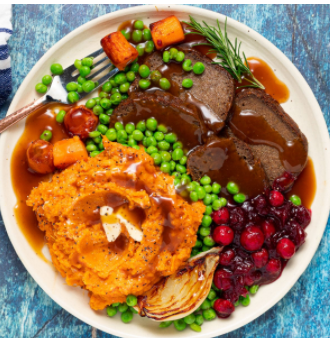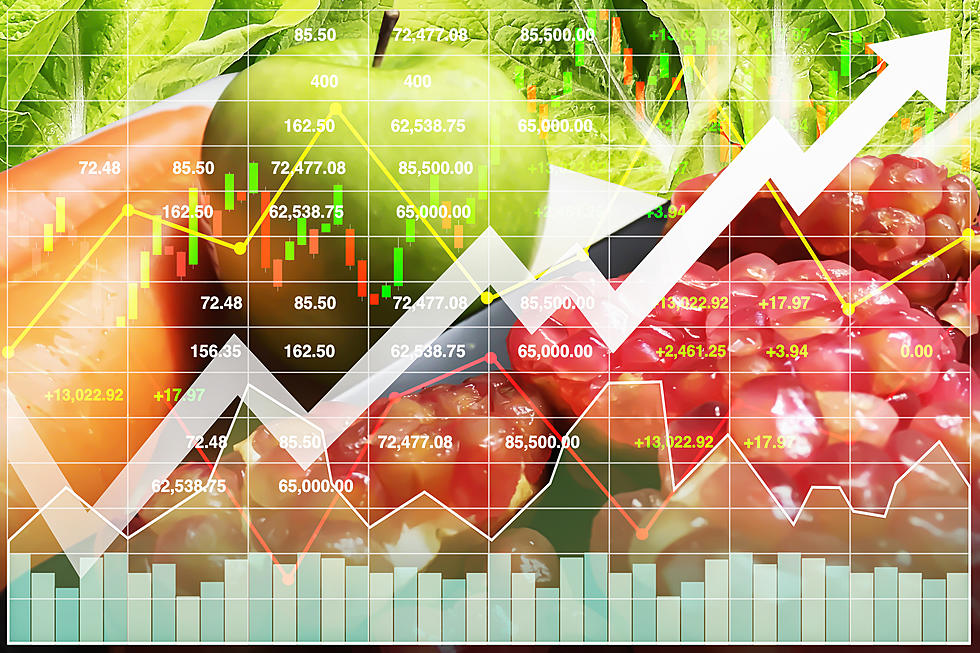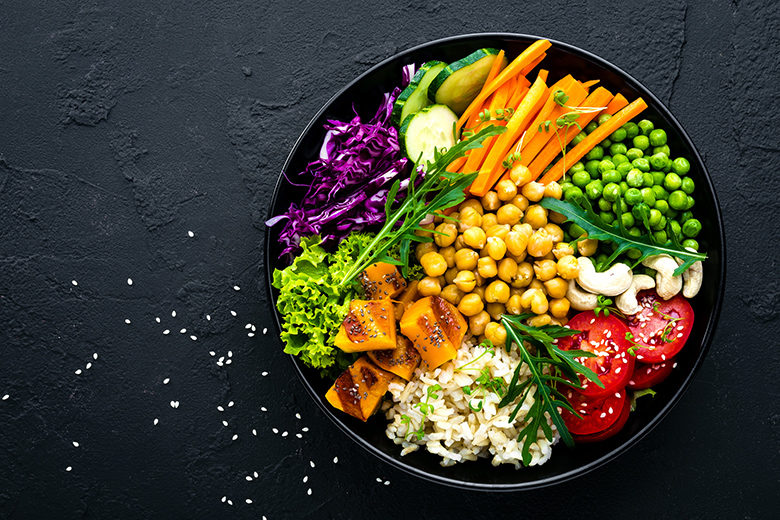
What Do Vegans Not Eat | Vegan 101
Food for thought...literally!
Whether you just went vegan or simply want to refresh your memory, we’ve compiled a list of food products to avoid if you’re trying your hand at a vegan lifestyle.
Though it’s important to check the nutrition label on a product’s packaging to make sure it’s vegan-friendly, oftentimes, shoppers can be misled by tricky marketing and hard-to-read labels.
To prevent being misinformed about the origin of an ingredient or product, continue reading to learn the seven foods vegans choose not to eat. We invite you to take this as an obvious, yet organized list of the basics of vegan eating habits.
Remember: Our vegan values are put to the test at least three times a day during breakfast, lunch, and dinner. So it’s important for us vegans to be consistent in our commitment to respect our friends in fur and feathers.
Without further ado, let’s dive in!
Steaks, Burgers, Meat Cuts, etc.
Let’s start with the most obvious one: meat! Meat usually traces back to a slaughterhouse where- to use meat industry lingo- animal flesh is ‘harvested’.
Livestock animals vegans don’t eat:
- Cattle (i.e. cows)
- Sheep
- Pigs
- Goats
- Horses
- Donkeys
- Mules
- Buffalo
- Oxen
- Llamas
- Camels
Vegans Can't Eat Poultry
Poultry largely refers to domesticated birds and is a major source of protein for most of the American population (and also a major source of bad cholesterol!).
Poultry includes:
- Chickens (from game hens, roaster, capon, fowl, étc.)
- Ducks
- Geese
- Pigeons
- Turkeys
Vegans Never Eat Fish & Other Seafood
While there are over 100 breeds of fish, the most popular sea creatures consumed by Americans are:
- Shrimp
- Salmon
- Tuna
- Alaskan Pollock
- Tilapia
- Pangasius
- Cod
- Catfish
These animal products account for over 90% of the fish and most of the seafood consumed in the U.S alone.
The ethical concern vegans have with fish is that, even though they cannot display facial gestures like most land animals, given their possession of a central nervous system, they feel pain and suffer just like other animals.
Ethical vegans are also concerned with the millions of beautiful (and often endangered) animals who get caught in the crossfire such as dolphins and sea turtles. The industry views the unintended death of these animals as “collateral damage”.
Dairy Products Like Milk & Cheese
This is one of the main products that separates a vegetarian diet from a vegan diet. Vegans do not eat dairy products or anything that comes from another animal. To be more specific, vegans choose not to drink the milk, milk powder, milk serum, or cheese that comes from:
- Cattle
- Buffaloes
- Goats
- Sheep
- Camels
- Yaks
- Horses
- Reindeer
- Donkeys
Cattle produce over 80% of the world’s milk production -- followed by buffaloes with 14%, goats with 2% and sheep with 1% -- and they require massive amounts of feed, water, and land. Vegans argue these resources could be used instead to produce plant crops to feed the world population and transition towards a more sustainable model of production.
Vegans Don't Consume Eggs
For those who follow the Standard American Diet (appropriately named SAD diet), it is likely you consume eggs every day. If you could trace back your fried egg breakfast to its source, you’d find they come from poultry like chickens or pigeons. Eggs come to be eggs because they’re meant to contain a baby chick, pigeon, ostrich, etc. within them. The shell protects the baby and the yolk sac helps as nourishment until he or she hatches out of the egg shell. In particular, vegans ditch:
- Chicken eggs
- Quail eggs
- Duck eggs
- Caviar (fish eggs)
- Goose eggs
- Turkey eggs
- Emu eggs
- Hilsa eggs (a popular fish in Eastern India & Bangladesh)
- Ostrich eggs
Many vegans choose not to eat eggs because of the brutal conditions egg-laying hens live in, not to mention the ethical concerns with taking away something so intimate from an animal. Eggs are also a high source of cholesterol and thus cannot be legally labeled as “healthy” or “nutritious”, which raises a lot of health concerns among the plant-based community.
No Honey Either!
This one may seem odd to most people, but the way honey is produced is...let’s say, not very fun for the bees. We’ll let you form your own opinion by watching this video -- but bee vomit doesn’t sound like much of an attractive selling point, does it?
It takes the full longevity of at least eight bees to produce one teaspoon of honey. It’s hard to imagine the cumulative work of a lifetime being used for just one bite.
All Animal-derived Ingredients
PETA has a very long list of animal-based ingredients to avoid such as gelatin and bone char (both derived from the bones and/or cartilage from animals) and this is usually what turns so many people away from a plant-based diet. When non-vegans look at their list, vegan diets may seem very restrictive. However, vegan alternatives are everywhere and the plant-based market is exploding. Flexitarians: hang in there and don’t give up on making strides to becoming 100% vegan!
In our next article, we will carefully select some of the elements of PETA’s list and give an insight about each and why vegans choose not to eat them. We’ll call it Vegan 102! Stay tuned!
So there you go: seven foods that vegans don’t eat.
Are you or a friend having trouble approaching a fully plant-based diet?
Sign up for our email list to find out our best tips and tricks on transitioning to a plant-based world!





